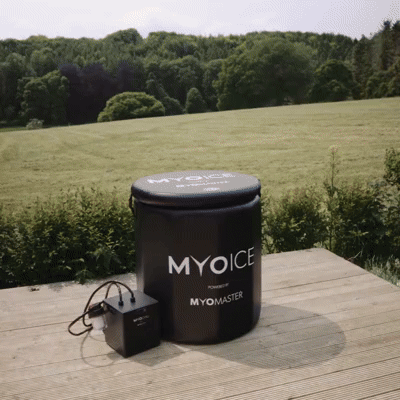Zinc is an essential mineral that plays a crucial role in many bodily functions, including immune function, protein synthesis, and wound healing. But did you know that zinc can also benefit athletic performance?
In this blog post, we'll explore the scientific research behind the benefits of zinc for athletes, how to know if you need to start taking zinc, as well as the best protocol for supplementation.
Benefits of Zinc for Athletic Performance
Enhanced Immune Function
Athletes are often at increased risk of infections due to the physical and physiological stress placed on their bodies. Zinc plays an important role in supporting the immune system by enhancing the activity of immune cells and reducing inflammation. In fact, a study published in the journal Nutrients found that zinc supplementation reduced the incidence of infections in athletes by 50% compared to a placebo group.
Improved Muscle Strength and Endurance
Zinc is involved in protein synthesis, which is essential for building and repairing muscle tissue. It also helps to maintain testosterone levels, which are important for muscle growth and repair. A study published in the Journal of Sports Science and Medicine found that supplementing with zinc increased muscle strength and endurance in trained male athletes.
Faster Recovery
Zinc is essential for wound healing, which is crucial for athletes who experience injuries or muscle damage during training or competition. A study published in the Journal of the International Society of Sports Nutrition found that zinc supplementation improved muscle recovery after intense exercise.
Reduced Inflammation
Intense exercise can cause inflammation in the body, which can lead to muscle soreness and fatigue. Zinc has anti-inflammatory properties and can help to reduce inflammation in the body. A study published in the journal Applied Physiology, Nutrition, and Metabolism found that zinc supplementation reduced markers of inflammation in athletes following intense exercise.
Zinc Supplementation Protocols
The recommended daily allowance (RDA) for zinc is 11 mg for men and 8 mg for women. However, athletes may require higher amounts of zinc due to increased losses through sweat and urine, as well as increased requirements for protein synthesis and immune function. The following are some guidelines for zinc supplementation for athletes:
Dosage
Studies have shown that zinc supplementation in doses of 30-60 mg per day can be beneficial for athletes. However, it's important to note that excessive zinc intake can be toxic, so it's important to stick to recommended dosages.
Form
There are several forms of zinc supplements available, including zinc gluconate, zinc citrate, and zinc picolinate. Zinc picolinate is thought to be the most readily absorbed form of zinc.
Timing
Zinc supplements can be taken at any time of the day, but it's best to take them with a meal to enhance absorption. Some studies have suggested that taking zinc before bedtime may enhance muscle recovery during sleep.
Do You Need Zinc Supplementation?
While zinc supplementation can be beneficial for athletes, it's important to note that not everyone needs to supplement with zinc. The following are some signs that you may be deficient in zinc:
- Frequent infections
- Slow wound healing
- Reduced sense of taste or smell
- Poor appetite
If in doubt, always check with a medical professional before starting a new supplementation routine.



